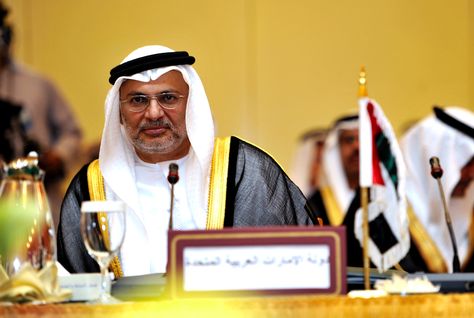
“The Arabian Gulf is in a dangerous confrontation, its strategic security is on the edge, and the moment of truth distinguishes between the real ally and the ally of media and statements,” Minister of State for Foreign Affairs Dr Anwar Mohammed Gargash tweeted after a unanimous resolution passed by joint session of parliament. The resolution, however, backed the government’s commitment to protect Saudi Arabia’s territory.
Gargash said Pakistan is required to show a clear stand in favour of its strategic relations with the six-nation Gulf Cooperation Council, “as contradictory and ambiguous views on this serious matter will have a heavy price to pay”. “This is nothing but another chapter of laggard impartial stand,” Gargash said, criticising identical views held by Turkey and Iran about the armed conflict in Yemen, as affirmed by the Turkish foreign minister, who had said a political way out of the crisis is the responsibility of Turkey, Iran and Saudi Arabia.
“Tehran seems to be more important to Islamabad and Ankara than the Gulf countries,” Gargash said. “Though our economic and investment assets are inevitable, political support is missing at critical moments,” he added.
“The vague and contradictory stands of Pakistan and Turkey are an absolute proof that Arab security – from Libya to Yemen – is the responsibility of none but Arab countries, and the crisis is a real test for neighbouring countries.” The Pakistani parliament’s decision that stipulates “neutrality in the Yemeni conflict” and expresses “its genuine support for Saudi Arabia” is “contradictory and unexpected from Islamabad”, he said. The parliament resolution turned down long-standing ally Riyadh’s request for troops, ships and warplanes, saying: “Pakistan should play a mediating role and not get involved in fighting in Yemen.” “Parliament of Pakistan…underscores the need for continued efforts by the government of Pakistan to find a peaceful resolution of the crisis,” the resolution said.
“(Parliament) desires that Pakistan should maintain neutrality in the Yemen conflict so as to be able to play a proactive diplomatic role to end the crisis.” In Islamabad, the Foreign Office refused to immediately comment on the remarks by UAE minister.
“We don’t have any confirmation of what exactly has been said and by whom; I have no comments at the moment,” the spokesperson said. In Riyadh, the military spokesperson for the Saudi-led offensive codenamed ‘Operation Decisive Storm’, Brigadier General Ahmed Asiri claimed that Pakistan is yet to announce its official position on the issue.
Asiri said while Pakistan’s participation would be an addition to the coalition, its absence in the operation wouldn’t affect the coalition’s work. The Grand Mufti of Saudi Arabia, Shaikh Abdul Aziz bin Abdullah Al Shaikh, who is also chairman of the senior scholars authority, called for military conscription of youth.
Aziz said, “We must prepare our youth properly to become a shield for us in the holy war against the enemies of religion and the nation.”
Saudi Arabia had requested troops, ships and aircraft support for the operation that aims to restore Yemeni President Abd Rabbo Mansour Hadi, who fled the country in the face of advances by the Houthis and their ally, former president Ali Abdullah Saleh.
The government of Pakistan, according to analysts, is facing dilemma as sending troops to Yemen could create serious rift in Islamic countries but not sending could also cause resentments among the allied countries in the Middle East.

Leave a Reply
You must be logged in to post a comment.